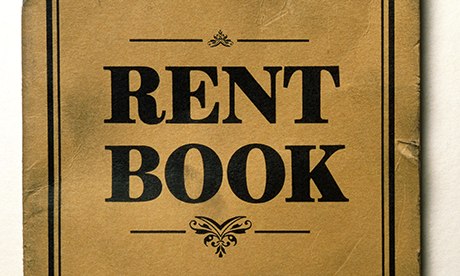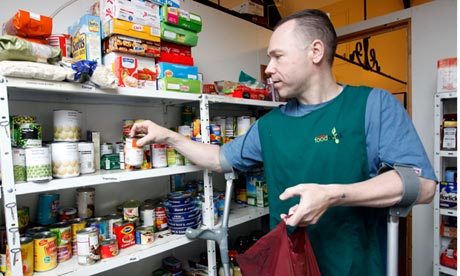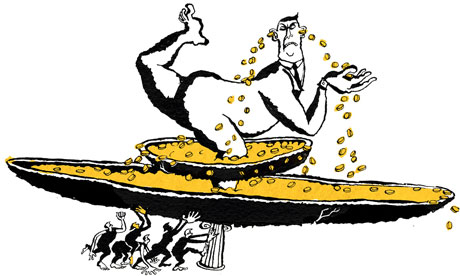An average of 70 per cent of households across all regions use the
same electricity supplier, with the proportion rising to 85 per cent in
some areas, undermining claims by the Government and Ofgem, the
regulator, that the energy market is operating competitively.
The
figures, uncovered by Labour, are published in the wake of the confusion
over the future of energy bills after David Cameron pledged in the
Commons to force companies to offer householders the "lowest tariff" – a
promise that within hours was exposed as unworkable. The Prime Minister
clashed with the Liberal Democrat Energy Secretary, Ed Davey, who
backed Ofgem's proposals, published on Friday, for a simplified tariff
system that encouraged consumers to switch between firms.
The
official figures show that companies supplying electricity to homes
where they inherited the network from the former utility boards are
operating a near monopoly, making a mockery of the idea that customers
routinely switch firms to get better deals.
Separate data from the
Department for Energy and Climate Change (DECC) reveals that customers
who have stayed with their old electricity supplier are paying more than
those who have switched. DECC analysis shows that these "home
suppliers" charge an average of £31 a year more than non-home suppliers
for electricity – in effect placing a premium on loyalty.
The
research emerged on the eve of British Energy Saving Week amid an outcry
that energy firms are pushing up fuel bills beyond the rate of
inflation, adding between £80 and £112 to the average annual household
bill.
Although deregulation of the energy market in the 1980s
supposedly led to more competition, the reality is more similar to a
monopoly within each region of the UK.
The largest five
electricity suppliers dominate the regions they inherited from utility
boards more than two decades ago, while British Gas still retains the
largest share of the retail gas market nationwide. This is despite
consumers being encouraged by price comparison websites to shop around
for the cheapest supplier. When the gas and electricity networks were
first privatised, price caps were in operation, but a decade ago Ofgem
removed controls because competition had, in theory, been established.
Yet
figures published in Parliament in a written answer to the shadow
Energy Secretary, Caroline Flint, show that there is little real
competition. Firms last night claimed the figures show the loyalty of
customers they inherited from the boards, but Ms Flint said the
companies appear to be exploiting consumers' unwillingness to shop
around. With a baffling array of more than 500 tariffs on offer,
consumers are often loath to switch.
In Northern Scotland, SSE,
the firm that inherited the network from the North of Scotland Hydro
Board, has retained an 85 per cent share of the retail electricity
market, while in south Wales, SSE has an 82 per cent share and in the
Southern region it has an 80 per cent share.
Scottish Power has an
82 per cent share in southern Scotland, and a 73 per cent share in
north Wales. EDF has remained dominant in London with a 74 per cent
share; in the South-east, it supplies electricity to 73 per cent of
homes; and in the South-west, it has 71 per cent.
Npower remains
the dominant supplier in the West Midlands, with 65 per cent of the
retail market; in Yorkshire, it has a 65 per cent share; and in the
North-east, 64 per cent. E.ON has a 69 per cent share in the East
Midlands; 68 per cent in the Eastern region; and 67 per cent in the
North-west.
The sixth major energy firm, British Gas, has held on
to 76 per cent of gas-only accounts across the UK. The figures do not
apply to dual fuel accounts, but nearly 10 million households are on
electricity only, and 4.6 million have gas only.
Ms Flint said:
"It's no wonder the energy giants are shame-faced about hiking up energy
bills when they have a stranglehold over the energy market. People talk
about the 'big six', but in most parts of the country there's only one
big supplier in town. The fact that 70 per cent of people in any region
all use the same electricity supplier suggests that the energy market is
not functioning properly. It cannot be right that customers who have
stuck with their old electricity supplier pay a premium for their
loyalty.
"The time has come to create a tough new regulator to
police the energy market properly, and force the energy companies to
pass on price cuts to the public."
A spokesman for Npower said:
"We have a larger than expected share in the West Midlands because our
history is in the Midlands. A lot of people were Midlands Electricity
Board customers and many of them remained so [under the new name]. The
rate of turnover has been quite significant, people have left and people
come back. It is about loyalty – many people still refer to us as 'the
Midlands Electricity Board' as they refer to British Gas as 'the Gas
Board'. They are with us because we are incredibly good value. It is the
same in the North-east. We feel very much part of the community in
these areas."
A spokesman for E.ON said: "Many of our customers,
while staying with us, will have regularly changed products. As such it
would be wrong to say they are not engaged in the energy market – they
are, and have chosen to stay with us. Some 69 per cent of our customers
overall have switched supplier or tariff in the past three years.
"It
is important that we treat every customer as an individual and as such
being on the right tariff for your own individual circumstances is
vital. In recent weeks we have made checking you're on the right tariff
easier than ever, and it is this simplicity and comparability that our
customers are responding to. By making things simpler and more
comparable, as well as continuing to provide help and advice that will
make homes more energy efficient, we can really help our customers and
ensure they are on the best deal for them."
A Scottish Power
spokesman said: "The British energy market is one of the most
competitive in Europe, and Scottish Power welcomes anything that
encourages or supports this competition."
SSE said in a statement:
"We would fully expect our customer retention rates to be higher than
those of our competitors because of our exceptional standards of
service, for which we are consistently recognised as the best in the
business by the likes of Consumer Focus and uSwitch.
"There's no
doubt that greater levels of consumer engagement in the market would be a
positive thing. However, switching rates in the UK compare very
favourably with those in other European energy markets, and with other
retail service markets such as fixed and mobile telecommunication,
insurance, mortgages and personal current accounts."
How easy is it to reduce your energy bill?
If a seasoned
investigator has trouble, what hope for the average consumer? Here’s what I
discovered after many frustrating minutes on hold:
Npower
My current provider, Npower, predicts my spend for the next 12
months will be £208.37 for 1,620 kWh of electricity and £531.78 for 11,260 kWh
of gas – all helpfully displayed in my latest bill, but irrelevant because it
was generated two days before they announced an 8.8 per cent price hike.
Sneaky.
British Gas
After an automated apology for any delay due to “a high volume
of customer calls” came some advice: “If you’re calling for our fix and fall
tarif,f go online to sign up and register your details. If you have received a
coupon about this offer, please complete it and return the pre-paid envelope.
If you are calling about a fixed contract that ends in either 2013, 2014 or
2015, your prices are not affected by our recent price increase.”
I simply want to find out if you can beat my existing deal.
“Press 1 to change your account name or address or if you are
moving house. Press 2 to give us your meter reading or find out your balance,
pay your bill or to let us know you are going to pay your bill or you have paid
your bill. Press 3 if you have any questions about your central heating or home
care or press 4 to talk to one of our team.”
Hooray. Well, nearly. I sit through more suggestions to “go
online for further information”. A pause, then a human voice. “You probably
were sent that estimate prior to their price rise announcement.” True. “Our
best deal is the online variable until November 2013, which includes the price
increases taken into effect. We can do a 6 per cent discount from your total
bill for direct debit.”
“That will cost you around £229 for electricity and £532 for
gas. A little bit more than your estimate, but your prices will go up
remember”.
So your prices are fixed, then?
“No, we have another “fix and fall” tariff which is not
discounted but is fixed until March 2014. That might make more sense to you.
“If our prices go up, yours won’t do, but if prices go down,
yours go down – and you get a fixed premium of 3 per cent.”
“That comes to £253.34 for electricity and £583 for gas.”
£100 more! “Ah, but your charges…”
Yes, yes, they will be going up.
To be fair, she did recommend I call npower to check how much
my bill would apparently be going up by. That was easier but it still took 17
minutes.
E.ON (no freephone)
It took less than a minute to speak with someone and we were
straight down to business: full address and phone number (“in case you get cut
off”) before we were on to the tariffs. Four on offer: standard, E.ON energy
discount (“3 per cent cheaper than standard for 12 months but you’re not
protected against price rises”), fixed one year or fixed two years. It was like
remortgaging a house.,
Standard came to £787.93 and the energy discount was £752.69.
Fixed one came to £776.48 – “no premium, mind” – and fixed two £816.39 – “a bit
of a gamble as it is 5 per cent above standard unit rate but you’re protected
against price rises.”
The good news: E.ON was not among the four of the “big six”
energy companies which had recently announced price rises for 2012. The bad:
“but it’s more than likely we will put them up for 2013”. Hmmm.
That took four minutes.
EDF
Oh dear. I gave up trying after being on hold for 15 minutes
listening to what sounded like Morcheeba. Rubbish.
SSE
After seven minutes on hold, I was mercifully told there were
only two tariffs the company provides – standard and capped. My quote was £28
more expensive than npower, but SSE credits your account with £100 when you
switch and their rate is capped for two years meaning, like British Gas, it
won’t go up, but could come down. And SSE “was the only energy company that
reduced their prices last year”. In addition, my gas and electricity standard
charge of 16.44 pence per day would come down to 14.8p with paperless billing.
“I’m here until 2pm if you want to switch,” a very helpful Eddie told me.
Scottish Power
I had tapped in my numbers to their online quote generator
which gave me an estimated bill of £816.57. But on the phone, a quote using the
same figures was better: £755. This for a deal fixed until March 2014 without a
cancellation fee. Did I want to know the unit price? I certainly did. “Scottish
Power’s first quarter electricity unit price is 21.74p for the first 225 units
going down to 10.99, compared with Npower’s current unit price of 16.93
reducing to 13.39. Our primary gas units are 8.10 going down to 3.01 with
Npower’s at 7.89 reducing to 3.51.” I regretted the request for more detail.
So much to choose from. Do I ditch and switch, fix or stick? I
have no idea. I tried calling Npower to see what their updated estimate would
be for next year, but their systems were down. I’ll have to call back on
Monday.
Paul Gallagher









